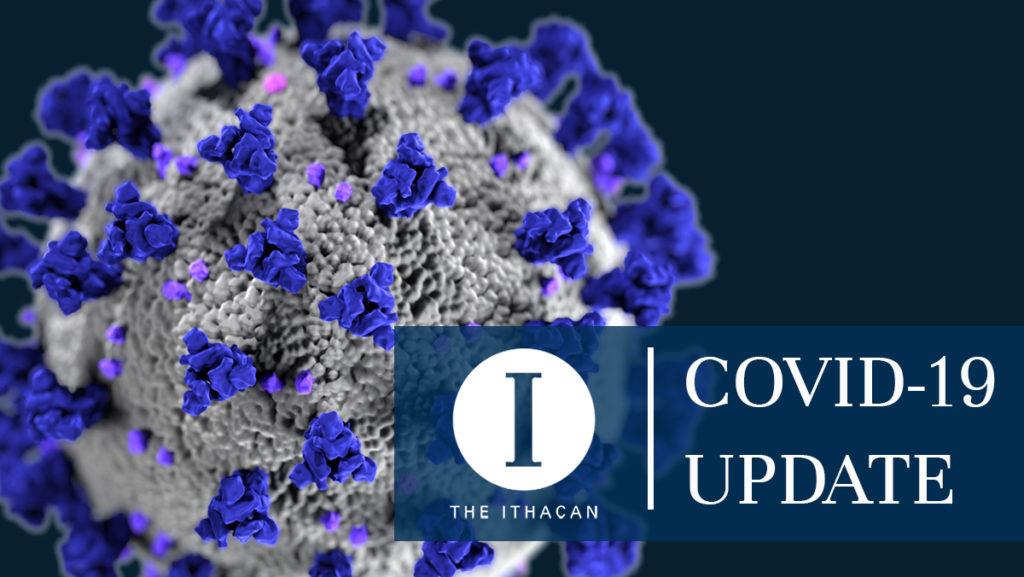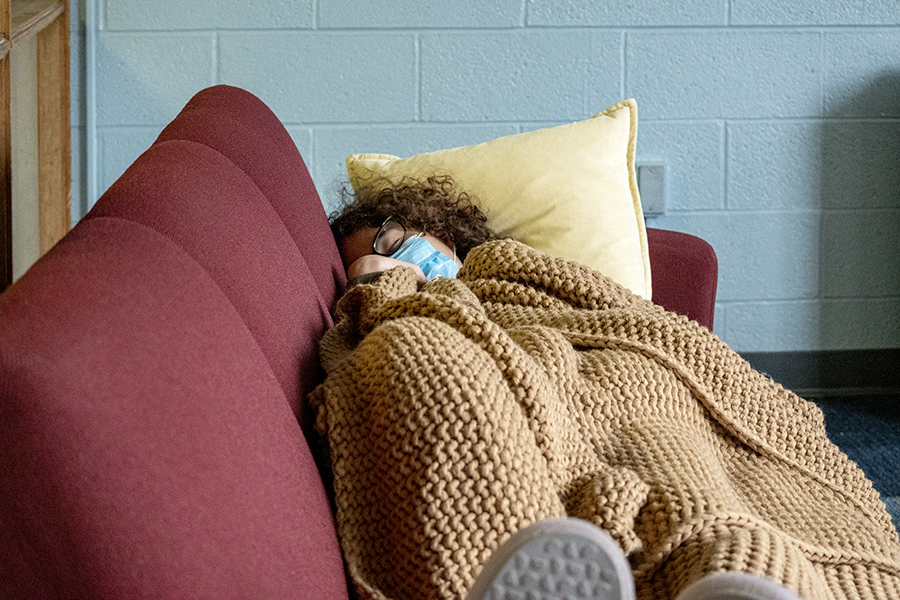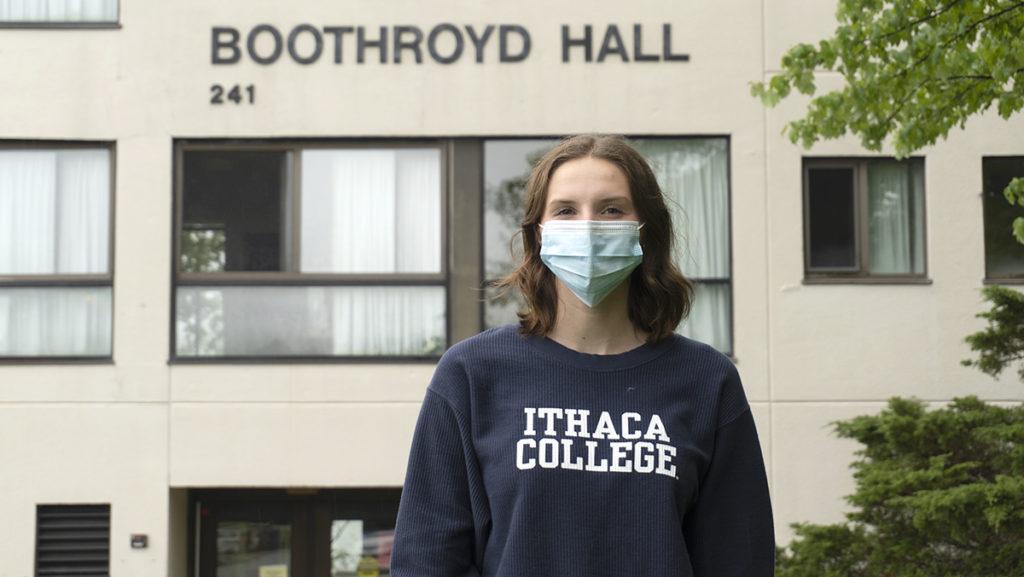Ithaca College put an end to its remaining COVID-19 infrastructure and policies, like testing locations and dedicated quarantine spaces, May 31. This change came after the Centers for Disease Control and Prevention announced the end of COVID-19 as a public health emergency May 11.
Samm Swarts, assistant director of Emergency Preparedness and Response, wrote in a public health update sent via email to the campus community that the COVID-19 testing location in Muller Hall will close.
Swarts wrote in the email that testing kits would continue to be available over the counter at the Hammond Health Center for students and at the Office of Human Resources information desk — which is located on the ground level of the Peggy Ryan Williams Center — for faculty and staff.
“The college has a large inventory of over-the-counter (OTC) rapid antigen self-testing kits,” Swarts wrote in the email. “These kits will be made available free of charge to all members of our campus community, while supplies last, until their shelf-life expires in November 2023.”
Swarts wrote in the email that students who test positive for COVID-19 will be expected to follow a self-management structure and isolate themselves in their residence hall rooms for five days. There will not be separate isolation locations on campus anymore. Till 2022, Emerson Hall served as the primary quarantine space and it was replaced by Boothroyd Hall for the 2022–23 academic year.
The college will also be terminating its wraparound care process, but students will be able to pack their meals from dining halls in the green box takeout container.
Swarts wrote in the email that students seeking COVID-19 treatment can utilize the resources offered by the Hammond Health Center, which are available through the summer and beyond, both in person and online.
While the college no longer requires incoming students to submit proof of COVID-19 vaccination, students have been urged to be vaccinated.
“Ithaca College continues to strongly encourage that all members of our community – both students and employees – maintain a high immunity to COVID-19 by making the choice to be vaccinated,” Swarts said in the email. “Staying up-to-date with vaccines continues to be an important way to minimize the risk for contracting severe symptoms resulting from this illness”










